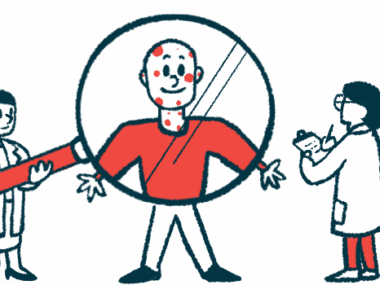Many Parents Believe Healthcare for Children with SMA Needs Improvement, Study Reports
Written by |

Optimal care of children with spinal muscular atrophy (SMA) requires improving competence and an adequate exchange of knowledge among healthcare professionals, as well maintaining a close dialogue with the family, according to a study reporting on the experiences of Swedish and Danish parents.
The study, “Bereaved Parents More Satisfied With the Care Given to Their Child With Severe Spinal Muscular Atrophy Than Nonbereaved,” was published in the Journal of Child Neurology.
SMA is a complex disorder that involves different professionals for various aspects of care that should be dealt as part of a multidisciplinary approach rather than separately.
Caring for a child with SMA poses challenges to parents; however, their experiences have been given little attention in literature, especially their satisfaction with the care offered by healthcare facilities and professionals and coordination between different settings. This knowledge is vital to designing a care system adapted to families’ needs.
Ask questions and share your knowledge of SMA in our forums.
In this study, researchers questioned a group of Swedish and Danish parents about their level of satisfaction with health professionals and various care settings, as well as the coordination between them.
The team analyzed nationwide Swedish and Danish surveys, collected over a period of 10 years, from 95 parents living with a child with severe SMA (those researchers called nonbereaved parents) and those who had lost a child to severe SMA (who they called bereaved parents).
Parents’ experiences were surveyed via questionnaires of up to 75 questions focused on information, decision-making, and support to the family. Their experiences with the quality of care in different care settings were also evaluated.
Questions concerned parents’ “experiences of coordination of care between settings and if the parents had experienced that the caregiving staff had taken every opportunity to help the child feel as good as possible,” according to the researchers.
They were also asked about the location of care for their child and satisfaction with the different care settings.
Two-thirds of the parents (68%) reported that healthcare professionals had taken every opportunity to help their child feel as good as possible, while one-third of them reported the opposite.
Bereaved parents were significantly more satisfied with care than nonbereaved parents, with 81% reporting they felt that caregivers had taken every opportunity to help their child feel as good as possible. This is in contrast to the 29% of nonbereaved parents who felt this way. This trend was maintained regardless of whether the child had type 1 or type 2 SMA.
A total of 39 parents made 52 statements related to how they felt providers cared for their child. Of these statements, 17 reported disagreement regarding care, with parents reporting discrepancies between how they thought care should be provided and the care their child actually received.
For example, some parents reported that due to lack of knowledge about the disease, their child was neglected or received poor-quality care. They also said that disease treatment and management to prevent complications was introduced too late.
Some parents reported they were satisfied with the strategies for pain relief and other distressing symptoms offered to their children, and with the overall healthcare.
“Other parents reported that their child’s care required proactive parental involvement and stated that they, as parents, had to take their own initiatives for treatment and disease management,” the researchers wrote.
Children received care in many different settings — in 60% of the cases, at least five locations were involved. In general, parents were satisfied with these various care settings. However, they were least satisfied with the emergency care unit, municipal rehabilitation center, and general pediatric unit.
About a third of the parents were dissatisfied with care coordination, describing a lack of knowledge and communication among staff. They felt that this lack of knowledge could “result in not getting the medical devices the child needed, or that it took a long time before resources were put to use,” the researchers said. Some parents also felt that healthcare professionals did not listen to or believe them.
“Our results highlight the importance of improving competence among health care staff, of ensuring interprofessional communication and knowledge exchange, and of having a close dialogue with the family about the care,” they wrote.
“For optimal care for these children and families, parents should be included in dialogues on care and staff should be more proactive and take care management initiatives,” they concluded.



